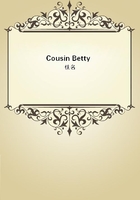
第146章
Baron Hulot, enjoying a course of solid food such as he had not known for nearly three years, recovered flesh and strength, and was almost himself again. This improvement was such a joy to Adeline that her nervous trembling perceptibly diminished.
"She will be happy after all," said Lisbeth to herself on the day before she died, as she saw the veneration with which the Baron regarded his wife, of whose sufferings he had heard from Hortense and Victorin.
And vindictiveness hastened Cousin Betty's end. The family followed her, weeping, to the grave.
The Baron and Baroness, having reached the age which looks for perfect rest, gave up the handsome rooms on the first floor to the Count and Countess Steinbock, and took those above. The Baron by his son's exertions found an official position in the management of a railroad, in 1845, with a salary of six thousand francs, which, added to the six thousand of his pension and the money left to him by Madame Crevel, secured him an income of twenty-four thousand francs. Hortense having enjoyed her independent income during the three years of separation from Wenceslas, Victorin now invested the two hundred thousand francs he had in trust, in his sister's name and he allowed her twelve thousand francs.
Wenceslas, as the husband of a rich woman, was not unfaithful, but he was an idler; he could not make up his mind to begin any work, however trifling. Once more he became the artist /in partibus/; he was popular in society, and consulted by amateurs; in short, he became a critic, like all the feeble folk who fall below their promise.
Thus each household, though living as one family, had its own fortune.
The Baroness, taught by bitter experience, left the management of matters to her son, and the Baron was thus reduced to his salary, in hope that the smallness of his income would prevent his relapsing into mischief. And by some singular good fortune, on which neither the mother nor the son had reckoned, Hulot seemed to have foresworn the fair sex. His subdued behaviour, ascribed to the course of nature, so completely reassured the family, that they enjoyed to the full his recovered amiability and delightful qualities. He was unfailingly attentive to his wife and children, escorted them to the play, reappeared in society, and did the honors to his son's house with exquisite grace. In short, this reclaimed prodigal was the joy of his family.
He was a most agreeable old man, a ruin, but full of wit, having retained no more of his vice than made it an added social grace.
Of course, everybody was quite satisfied and easy. The young people and the Baroness lauded the model father to the skies, forgetting the death of the two uncles. Life cannot go on without much forgetting!
Madame Victorin, who managed this enormous household with great skill, due, no doubt, to Lisbeth's training, had found it necessary to have a man-cook. This again necessitated a kitchen-maid. Kitchen-maids are in these days ambitious creatures, eager to detect the /chef's/ secrets, and to become cooks as soon as they have learnt to stir a sauce.
Consequently, the kitchen-maid is liable to frequent change.